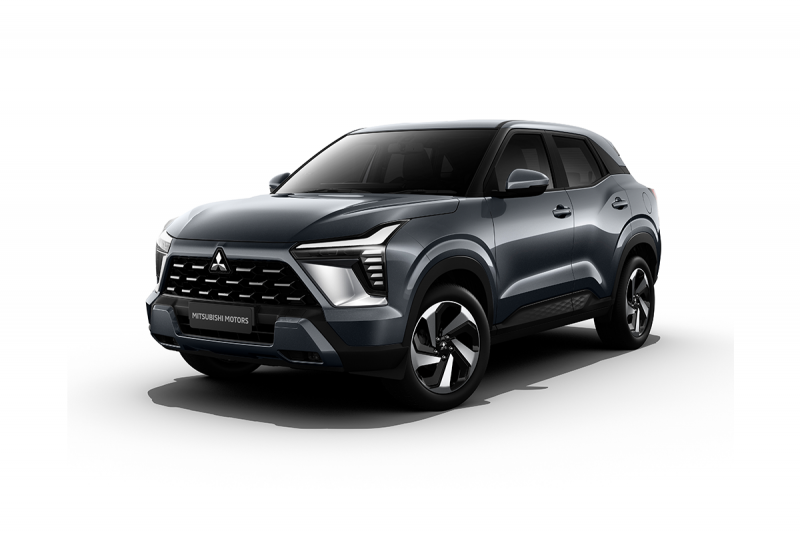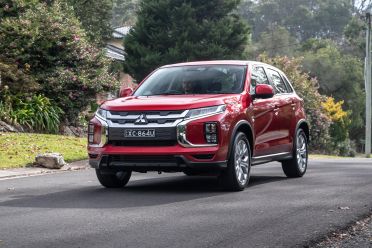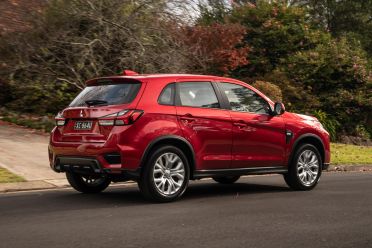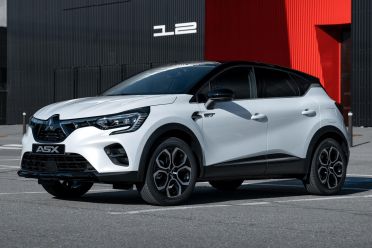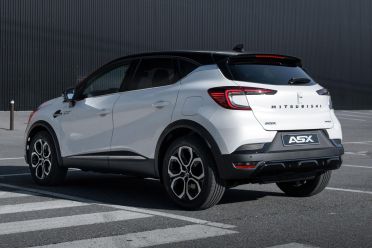Mitsubishi has provided a look at the exterior of its upcoming new small SUV, set for its official unveiling at the Gaikindo motor show in Indonesia on August 10.
Although the model is initially intended for the Association of Southeast Asian Nations (ASEAN) region, including countries such as Indonesia, the Philippines, and Thailand, a global release hasn’t been ruled out – and should it come to Australia, it could serve as a replacement for the aged ASX.
On top of a glimpse at the still-unnamed model’s design language, the Japanese automaker has revealed some initial technical details.
The front-wheel drive SUV will use a 1.5-litre engine with a continuously variable transmission (CVT).
Though there’s no all-wheel drive, Mitsubishi says the SUV has a substantial 222mm of ground clearance.
Four drive modes will be available – Normal, Wet, Gravel and Mud. There will also be active yaw control.
It remains faithful to last year’s XFC concept car, though it loses flashier features such as the flush door handles and camera mirrors.
The model’s side profile sports a floating roof, door sills embossed with a diamond pattern, and wheel arches marked by deep grooves and filled with 18-inch wheels.
At the front, the SUV has Mitsubishi’s staple Dynamic Shield grille that has been updated with more aggressive geometric styling.
It is shouldered by T-shaped LED daytime running lights formed of an L-shaped light bar and slitted accents, the shape of which is repeated in the rear tail lights.
The model measures in at 4390mm long, 1810mm wide, and 1660mm tall. That’s 25mm longer and 20mm taller than the ASX, while retaining the same width.
Customer deliveries for the ASEAN markers will begin in November, rolling off the line at Mitsubishi’s West Java manufacturing facility.
In the cabin, passengers will get to experience the surround sound audio system developed in collaboration with Yamaha.
If the XFC concept also provides an accurate guide for the model’s interior, we can expect to see an airy cabin with a freshly designed steering wheel, a large assembly housing the infotainment touchscreen and a digital instrument cluster, and haptic touchpads to control features.
“In this all-new model, we have further evolved the design to meet the needs of the compact SUV market, which has been growing in recent years…we have pursued a design that is more stylish, energetic, and distinctive than ever,” said Mitsubishi design manager Seiji Watanabe.
Mitsubishi president and chief executive Takao Kato said at the XFC Concept reveal last October it plans to “add an electrified variant to the line-up and to also roll it out in regions outside ASEAN”.
“We hope to grow the model from a vehicle for the ASEAN market to a global strategic vehicle,” he added.
There is speculation that this new compact SUV could act as a replacement for the current ASX in the Australian market, with senior executives within Mitsubishi confirming to Australian media earlier this year acknowledging the fact the current model “can’t last forever.”
However, the executive officer responsible for product at Mitsubishi, Koichi Namiki, admitted head office is “not assuming” there’ll be a gap between the ASX currently on sale and whatever replaces it in local showrooms.
Since there is no confirmed end date for the ASX, even if the ASEAN-focused compact SUV does make it to Australia it isn’t expected any time soon.
Mitsubishi doesn’t currently sell the 2010-vintage ASX in markets like Indonesia, Thailand and Cambodia, though it remains on price lists in markets like Japan (as the RVR) and North America (as the Outlander Sport).
The current ASX has been treated to multiple styling and tech updates during its lengthy run, but is now around five years beyond the point most vehicles would have been replaced.
In Europe, it is being replaced by a new vehicle called the ASX… but which is little more than a Renault Captur with Mitsubishi diamonds in lieu of the Renault diamond.

